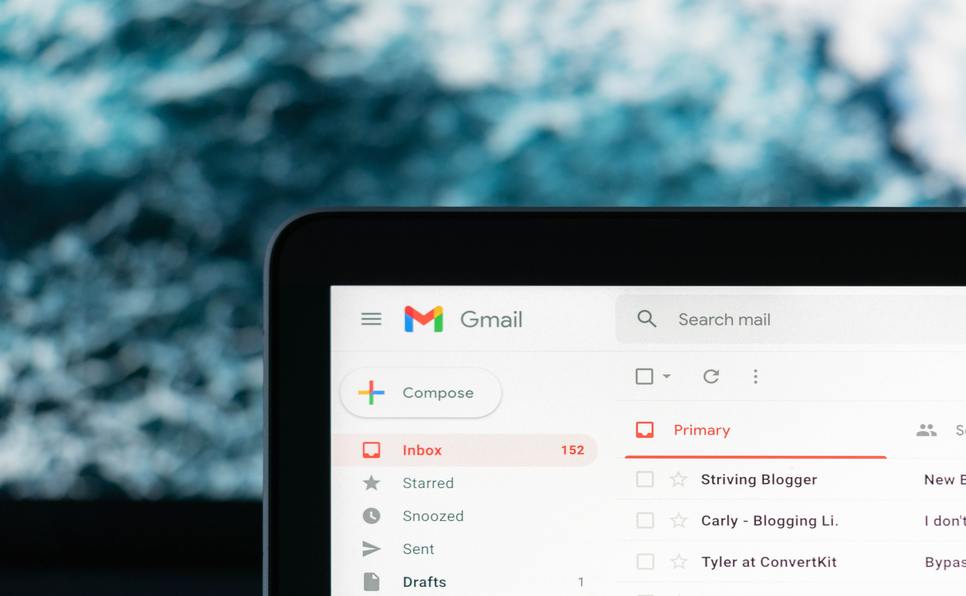While most query letters follow a tried and tested format, not all are exactly alike. It’s important for you to be aware of query letters for different genres, especially if your manuscript is a little out of the box.
How do you know which genre you’re writing in?
Do you think you’ve writer upmarket women’s fiction, but with a splash of domestic suspense? Or is it predominantly domestic suspense, with a few elements found in upmarket women’s fiction? My best advice here is: read comps i.e. comparative titles, and see which one your manuscript best aligns with. If you’re not one hundred per cent sure, go with the prevailing genre. Why? Because a literary agent will request more materials if they are interested and will be able to help you shape exactly which genre you’re writing in later. For example, I was convinced that I was writing psychological thrillers, until an industry professional informed me that it was actually psychological suspense. A subtle yet absolute difference, and one that only mattered after I’d secured literary agent representation. Remember, although genre is not absolute, it’s more about where your book will be positioned and the shelves it will sit on after it sells. In other words, a literary agent needs to be able to clearly see how they will market your book.
Query letters for different genres
In alphabetical order, here’s how to write query letters for different genres, formats, and audiences and lengths:
How to write a query letter for a children’s book, middle-grade book, or picture book
Writing for children is quite different to all other genres. Don’t mistake story simplicity for query simplicity: you still need to follow the rules around query letter writing, although query letters for children’s books can be slightly shorter, depending on the story and age range. Talking of, be sure to include the age range you’re writing for, and why it would appeal to the parents buying the book. Make your voice pop, but don’t write like a child or one of your characters. That’s just irritating. And if you’re writing for middle-grade, ensure your tone and theme match that age group. It’s always a good idea to reveal your character’s ages, too—a middle-grade book must have a main character in middle grade. If it’s a picture book, you can give an idea of the kind of illustrations you foresee, but don’t be prescriptive. Most of the time, writers and illustrators are paired much later down the line.
How to write a query letter for a graphic novel
As a graphic novelist, you’ll likely be the author of the script and the illustrator. In this case, it’s fine to share your visuals and talk about illustration styles in your query letter (unlike picture books, which may not have been assigned an illustrator yet and are far more focused on the story). You’ll need a way to share your work, so be sure to include a link to your website or portfolio in your query letter. Unlike traditional query letters, it’s better to give a page count, rather than word count.
How to write a query letter for historical fiction
Time and place is everything here. It’s a good idea to include these in your hook so that the literary agent is instantly located in your world. At the same time, don’t make it so faraway and removed that it doesn’t resonate. Good historical fiction takes human experiences that resonate, no matter when they’re set. While you can take some liberties with historical fiction (hello, Bridgerton), you still need to hint that you’ve done your research by sprinkling in some facts, dates, and details that are relevant to that era. It’s also important to include comps that bear some similarities to your time period (don’t compare a WWII novel to a novel about the Regency era unless there is an obvious thematic connection).
How to write a query letter for a hybrid genre book
North America loves categorizing books into nice little boxes (it’s just less of a big deal in the U.K. and Europe). It’s fine to write a book that spans multiple genres, but you need to be upfront about it. As mentioned above, it’s not about what your book actually is, but how a literary agent thinks they can market it. Think how popular a genre romantic suspense is! Or how about speculative fiction with a dash of literary? When you stop to consider it, most commercially successful books straddle multiple genres. Just make sure your genres make sense: a historical novel set in space with steam punk, agricultural crime elements might not resonate with a lot of people.
How to write a query letter for a memoir
Memoir is an interesting one, because it straddles the line between fiction and non-fiction. It’s essentially a narrative about yourself. A memoir almost always requires a book proposal, and sometimes requires a query letter, depending on the agent’s submission guidelines. Your query letter is essentially a truncated version of your proposal, and significantly differs from a traditional query letter. Start by writing a non-fiction book proposal, and use your overview to form the basis of your query letter (if required).
How to write a query letter for a non-fiction book
You don’t! A non-fiction book doesn’t use a query letter (or only very occasionally, for a memoir—as above). It uses a book proposal, which is something altogether different from a query letter. A proposal is usually a 50-100 page document that dives deep into your platform, marketing plan, synopsis, and usually includes the opening few chapters of your work.
How to write a query letter for a novella
The key difference here is to clearly state that you’ve written a novella, not a novel, and to include the word count. Novellas can range from 10,000 to 40,000 words, whereas the sweet spot for a novel (depending on genre) should be around 80,000. The last thing you need is for a literary agent to immediately discount your query based on length. Some agents may be intrigued by your premise, but might ask you to turn your novella into a novel for an easier sell. Remember, all agents care about is whether they think they can sell your work to acquisitions editors! Novellas, like short story and poetry collections, are a trickier sell, although not impossible.
How to write a query letter for a poetry collection
Not that many literary agents accept poetry collections since there’s historically not a great deal of money in them. A better bet might be to query smaller, indie presses and publishers directly. Much like a short story collection, you’ll want to focus on the core themes of the collection as a whole, not on individual poems. Shout about any publishing credits, awards, or recognition. You’ll also want a fair chunk of your poems published in reputable literary magazines or journals.
How to write a query letter for science fiction or fantasy
Sci-fi and fantasy are a little different from other genres in that you can get a lot more specific with your sub-genre. For example, it could be a sci-fi novel with speculative elements. Or speculative fiction. Or a space opera. Or a near-future dystopia with a fantasy sub-plot, in which case the way you set up your world building will be particularly important. Get specific. And make sure you get the word count right. Unlike other novels averaging at 80,000 words, science fiction and fantasy can go over 100,000 words and beyond.
How to write a query letter for a screenplay
While some literary agents do accept screenplay query letters, screenplay writers will also need to research film agents, executives, producers, production companies, and studios. Query letters for screenplays generally follow the same format as a literary query letter, except your one-sentence hook is known as a logline, your comps should be films, not books, and your bio should focus on optioned projects. It’s also key to include a link to your website where you should host synopses of other scripts. And, always, keep it professional, concise, and humble—don’t mention who you think should star in your movie, and don’t say you want to act or direct it yourself! That is just vain.
How to write a query letter for a self-published book
Avoid. If you’ve self-published, it’s highly unlikely that an agent will take you on for that same project (although it certainly doesn’t hurt to pitch a new project). Once you hit “publish” on Amazon, an agent can no longer sell your book to editors because of rights and sales issues. However, there are rare occasions where agents or even editors will solicit self-published authors who are break-out successes (E.L. James, for example) and do a second print run, but that is only after the audience and market has already been proven.
How to write a query letter for a series
Many writers who’ve written a series or trilogy fall into the trap of pitching the entire series. Never do this. Always just query a single book—usually the first in the series (unless you’ve already had a successful sale of the first and are switching agents for the sequel). Why? Because if an agent can’t sell the first, they’ll be stuck with the rest. Or if they do sell the first, but it experiences poor sales, the publisher may drop the author. A standalone project is always an easier prospect for agents to get their head around. It’s fine to mention on the literary agent call that you see this being part of a series, but just not in your query letter. It’s also fine not to have finished writing the entire series, as long as you’ve finished the book you’re querying.
How to write a query letter for a short story collection
I say short story collection rather than short story, singular, here. Pitching a short story will almost invariably mean a short cover letter to a magazine or posted via Submittable and is quite different from a query letter. If you’re writing a query letter for a short story collection, you will need to mention how many of your stories have been published. That’s correct: unlike a novel which should not have been previously published in any form, agents actually require you to have published some of the short stories in your collection (say, 25% or more of them). The bigger the publication, the better. Short story collections are notoriously difficult to sell, and prior publishing credits act as proof that there is marketability here. Don’t just focus on one story in your query letter; provide an overview of the entire collection. Fun fact: linked story collections (interconnected by a character, theme, or setting) often eventually get sold as novels anyway, if not to the editor, then by the time they hit the shelves. They do still get published (often to great critical success—see our interview with Morgan Talty), but they are highly competitive.
How to write a query letter for women’s fiction
Women’s fiction is a little bit of a misnomer since anyone can read it, but women’s fiction (or “chick lit”—urgh) is always marketed towards women, and it needs to have a strong female main character. Keep the query focused on your character’s journey, and avoid writing your query letter in your main character’s voice (agents see this as a gimmick). Women’s fiction doesn’t mean it can’t be literary, or have other sub-genres flowing through the narrative; it just needs a strong hook and theme to appeal to a female market.
A final note on writing query letters for different genres
Of course, this list on writing query letters for different genres is not exhaustive. There are dozens of genres and formats, each one requiring a slightly unique slant. The most important thing you can do is get the fundamentals of writing a query letter right and make yours as perfect as possible. Ultimately, if the right agent connects with your query, they will request more materials, regardless of genre.
Recommended reading
Here at Aspiring Author, we love recommending bestsellers and fawning over hot new releases. On this real time recommended reading list, you will find a list of top rated books on the publishing industry, craft, and other books to help you elevate your writing career.









